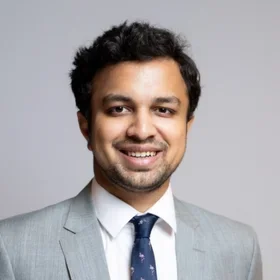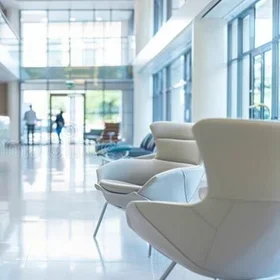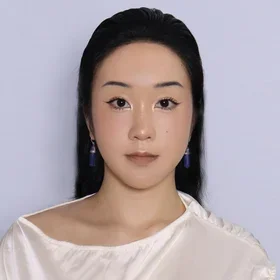Marilyn Eshikena had studied science but didn’t want to become a medical practitioner. Growing up in Nigeria with a mother who was a dentist, her family expected her to pursue medicine. She took a slightly different career route; she considered dentistry and ultimately focused on Biomedical Science.
She completed her undergraduate studies at The University of Sheffield in England. As those around her enrolled in medical school, she began to question whether becoming a doctor or dentist was the only way that she could meaningfully engage in the field of science. Marilyn tells me, “That's where my interest in ethics, morality, and philosophy came from.” She pursued an M.S. in Bioethics at Columbia and graduated in 2014.
On campus at Butler Library, we spoke about what she loves about bioethics, what opportunities arose for her as a result of the program, and what ethical issues arise when doing human subject research on vulnerable patients.
Your interest in bioethics, was it connected to any childhood aspirations?
My mom is a dentist, so I always assumed that I was going to go into dentistry, too. In high school for my A-levels, I studied the sciences. But I started to see science as not just a standalone thing. What are the other things that affect this thing called biological science? That's where my interest in ethics, morality, and philosophy came from.
What drew you to the Bioethics program at Columbia?
My undergraduate work was in Biomedical Science, which I did in the U.K. In Biomedical Science, it seemed like everyone went on to do medicine or dentistry. I enjoy the field, but I didn't want to pursue that.
That's when I discovered clinical trials for drug development and the bodies that regulate how research is being done on [human subjects].
I found out about bioethics, and I liked that it was interdisciplinary. It incorporates law, theology, and psychology, among other topics.
What made you move to the U.S. from England?
Well, I'm Nigerian. I had moved to England for school, and then I moved here [to the U.S.] for Bioethics. America seemed to have a very strong bioethics presence, especially academically. It seemed like other schools in the U.K. that offered a Bioethics program – they only offered it to medical professionals. There weren't that many programs there for people like me who were about to graduate from undergrad and wanted to go on to grad school immediately.
When you were in the program, what do you think was most valuable to you?
There was an option to do an internship for graduate school credit. I signed up for that, and I got paired with an IRB [at the New York State Psychiatric Institute]. I formed a very strong network with this IRB, and even after my internship for credit was over, I stayed on with them.
My director there used to work at Sinai. I applied for a job at Sinai, and the things I had learned at the New York State Psychiatric Institute and the connections I had formed helped me transition to my new role at Sinai.
Every step of the way, I felt like I was not alone and I was learning something big.
Is there anything that you're working on now that you're excited about?
I'm hoping to publish a paper from my thesis. My thesis was about addiction research, research that involves addicts as the subjects, in which they're exposed to the substances to which they’re addicted. Is there any other way that we can do this research without exposing [addicts] to their drug of choice? It's rarely talked about. It's a touchy issue.
Can you tell me a little bit about your current role at Mount Sinai?
At Mount Sinai, the department [in which I work] is called the Program for the Protection of Human Subjects, and I’m an IRB analyst. My role is to review any protocols that are submitted to the office and to measure them against relevant regulations to make sure that [the protocols] are consistent. We need to make sure that people aren't being taken advantage of for the sake of science.


